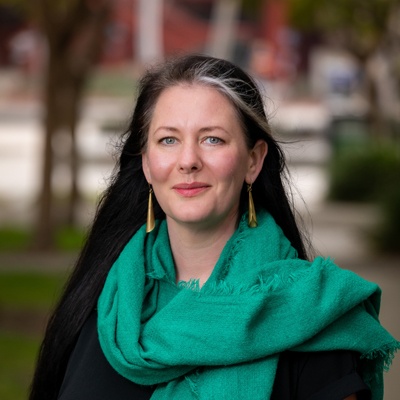Laramie Smith, PhD, associate professor of medicine at the UC San Diego School of Medicine, recently received funding to establish the California Center for HIV Syndemic Policy Research.
Despite the advancement of effective evidence-based biomedical interventions that could end the HIV epidemic and a comparatively progressive public health and policy landscape, HIV inequities persist in California. The newly established California Center for HIV Syndemic Policy Research is aiming to better understand the reasons why and to help communities overcome them.
Laramie Smith, PhD, associate professor of medicine at University of California San Diego School of Medicine recently received funding to establish the center. This nearly $1 million, 18-month award is co-funded by the California HIV/AIDS Research Program in collaboration with the California Tobacco-Related Disease Research Program. The new center will address HIV inequities at the community and societal levels throughout California.
“The HIV epidemic persists in California in part because there’s a gap between existing policies and effective interventions,” said Smith. “The California Center for HIV Syndemic Policy Research will invest in front-line community-based organizations to reach people with lived and living experience. We need to partner with communities living with inequities to build policies and programs to overcome them.”
Factors that increase a community’s vulnerability to poorer HIV outcomes include tobacco and other substance use; mental health needs; economic, food or housing insecurity and incarceration. When two or more of these factors are prevalent in a community, they are termed syndemic.
“A syndemic is an intersection of ‘synergistic epidemics,’” said Smith. “The difference between research focused on co-occurring conditions or comorbidities is that the focus of syndemics is all about communities that experience co-occurring epidemics that intersect to produce worse health outcomes in that community because of the social/environmental factors, not biological or individual factors. For example, a person doesn’t have a syndemic because they have depression and diabetes. Communities are affected by syndemic conditions when they have environments where intersecting mental health and diabetic epidemics produce worse health outcomes for members of those communities. The co-occurrence of diabetes and depression, for example, does not produce the same worse outcomes in all communities equally.”
Through the newly created policy center, Smith and colleagues will connect with local community-based organizations to expand their capacity and establish partnerships with UC San Diego, UC San Francisco and San Diego State University. This community-academic collaborative will focus on communities affected by HIV and co-occurring syndemic factors to inform relevant local and statewide policies to effectively address HIV inequities.
“What is exciting about this new policy center is that our communities will co-develop and co-lead research to change policies with us while keeping our focus on the drivers of HIV inequities, not just the virus itself,” said Smith.
Co-principal investigators for the center include: Orlando Harris, PhD, FNP, MPH, at UC San Francisco and Sabrina Smiley, PhD, MPH, at San Diego State University, along with UC San Diego School of Medicine co-investigators, Tommi Gaines, DrPH; Natasha Martin, PhD; Jamila Stockman, PhD, MPH, and Dan Werb, PhD.
— Joyce Pritchett
